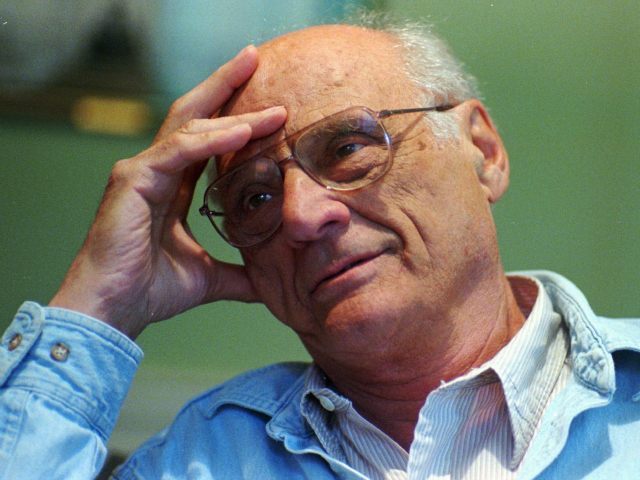On the occasion of the centenary of Arthur Miller’s birth, Paul Kengor published a major exposé of Miller’s dedication to communism in the American Spectator.
The article is packed with information showing that Miller was, indeed, a communist. Most notably:
To Congress, Miller conceded the numerous pro-communist appeals he had signed and the protests he joined by Red-backed groups. He refused to name names of those who were there with him. Likewise, he would not name people who joined him during the mere four or five times that he said he had attended Communist Party writers’ meetings. Miller also denied that he had ever been under “communist discipline” and would not answer the question of whether he had ever joined the Party.
The most dramatic moment of the hearing came when the House Committee’s lead counsel asked Miller if he once signed an application to join the Communist Party. As Miller dissembled, the counsel presented the exact five-digit application number on the Communist Party application form that contained Miller’s name and address at 18 Schermerhorn Street in New York. Congress went so far as to publish a photocopy of the application card.
That exhibit remains a striking form of evidence. A photocopy is published on page 191 of my book, Dupes. Under the banner “Victory in 1943,” the form states, “APPLICATION FOR MEMBERSHIP” and lists an “A. Miller,” with occupation of “writer” at an address that just happened to be Miller’s own Brooklyn address. The number of the application was 23345. Confronted with this rather compelling evidence, and asked if it indeed proved that he had made an “application for membership in the Communist Party,” Miller curiously told Congress, “I would not affirm that. I have no memory of such thing.”
For a man that the left still hails as nothing short of unsurpassable genius—with the word “brilliant” a standard description—this was a notable and lamentable memory crash.
Concerning Miller’s famous thinly-disguised attack on anti-Communism, the Salem witch trial reenacting play The Crucible, however, Kengor writes that—despite evidence that such information exists—he has not “been able to track down such a clear admission from Miller” that the play was inspired by the trial of the Rosenbergs, (who were, of course, guilty).
This information is, indeed, elusive. There is a passage in a 2009 biography, Arthur Miller: His Life and Work by Martin Gottfried in which the author writes that Miller “would later tell Anne Jackson (when she was playing Ethel Rosenberg in the 1970 play Inquest) that he had been so enraged by the treatment of the Rosenbergs that he’d set out to write the witch hunt play ‘about them.'”
Miller died in 2005. Even years after the Soviet Union collapsed, why couldn’t he have just told the truth?

COMMENTS
Please let us know if you're having issues with commenting.